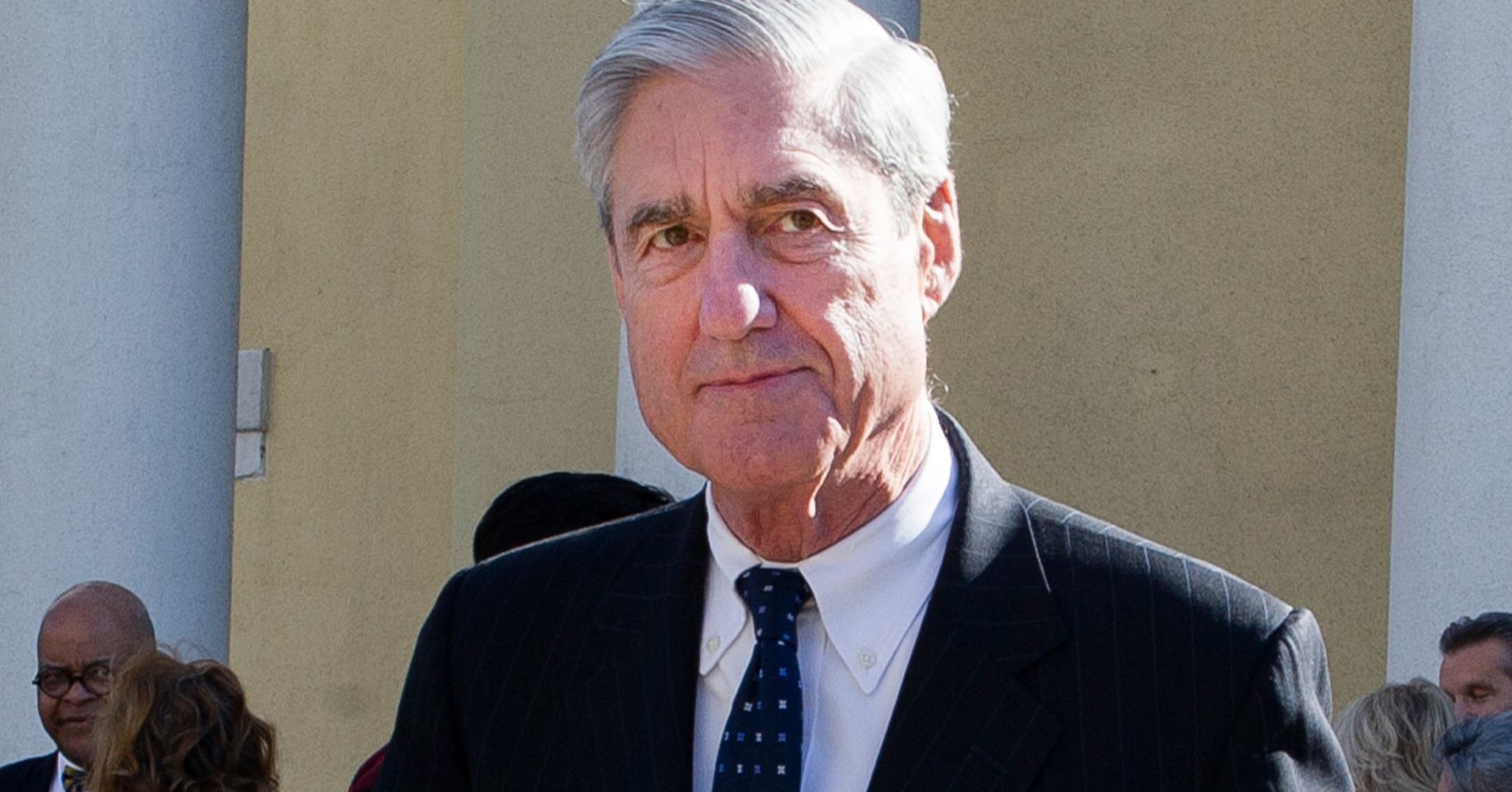
Special counsel Robert Mueller’s investigation did not conclude whether President Donald Trump obstructed justice after looking into numerous potential instances, in part because of issues in determining the president’s intent.
In a more than 400-page report summarizing the probe into Russian efforts to interfere in the 2016 election released Thursday, Mueller’s team outlined why it “does not conclude that the president committed a crime” but also “does not exonerate him.” The document states that the evidence obtained about Trump’s “actions and intent presents difficult issues that prevent us from conclusively determining that no criminal conduct occurred.”
In the absence of a conclusion by Mueller, the Justice Department determined that Trump did not obstruct justice. In explaining the decision, Attorney General William Barr said he and Deputy Attorney General Rod Rosenstein considered not only whether the acts were “obstructive” but also the president’s intent in taking those steps. Barr in part cited “substantial evidence” in Mueller’s report “to show that the president was frustrated and angered by a sincere belief” that the probe undermined his presidency.
The Mueller report cites three problems with drawing a conclusion on obstruction: the president’s constitutional authority, the lack of sufficient evidence that Trump committed a crime related to Russian election interference that he would want to cover up and the fact that some of his actions took place in public view. Trump’s lawyers argue the president cannot commit obstruction, though Mueller’s team suggested it does not agree.
The special counsel’s team notes that it thinks Congress has the authority to investigate the president for obstruction. It “concluded that Congress has the authority to prohibit a President’s corrupt use of his authority in order to protect the integrity of the administration of justice,” Mueller’s office writes.
Mueller’s team looked into several critical events to determine whether Trump obstructed justice:
- His actions related to the FBI investigation into former national security advisor Michael Flynn, including the president asking former FBI Director James Comey to “let [the probe] go”
- How Trump reacted to Comey publicly confirming the Russia investigation and the president’s efforts to get ex-Attorney General Jeff Sessions not to recuse himself from it
- The president’s decision to fire Comey and the White House’s explanation of the move
- Trump directing former White House counsel Don McGahn to remove Mueller, which McGahn ultimately did not do
- The president aiming to limit the investigation only to future election interference and his subsequent criticism of Sessions
- Trump’s efforts to prevent the disclosure of information about a 2016 meeting in Trump Tower between campaign officials and Russians
- The president’s push to get Sessions to undo his recusal from the investigation
- Trump’s actions toward Flynn, his former campaign chairman Paul Manafort and ex-personal attorney Michael Cohen as they faced legal scrutiny
Mueller’s team writes that its investigation “found multiple acts by the President that were capable of exerting undue influence over law enforcement investigations, including the Russian-interference and obstruction investigations.” It says his “efforts to influence the investigation were mostly unsuccessful, but that is largely because the persons who surrounded the President declined to carry out orders or accede to his requests.”
The detailed report goes through each of the actions Mueller investigated for potential obstruction, laying out the evidence and analyzing the president’s possible intent. In many cases, the special counsel says the motives behind the president’s actions are inconclusive.
Here’s one example in how Mueller’s team viewed Trump’s intent in firing Comey:
The evidence does not establish that the termination of Comey was designed to cover up a conspiracy between the Trump Campaign and Russia: As described in Volume I, the evidence uncovered in the investigation did not establish that the President or those close to him were involved in the charged Russian computer-hacking or active-measure conspiracies, or that the President otherwise had an unlawful relationship with any Russian official. But the evidence does indicate that a thorough FBI investigation would uncover facts about the campaign and the President personally that the President could have understood to be crimes or that would give rise to personal and political concerns.
Several parts of the Mueller report reference the apparent anger and frustration Trump felt about the investigation — which Barr referenced earlier Thursday in outlining the decision not to charge the president with obstruction. Mueller’s team says “the evidence shows that the President was focused on the Russia investigation’s implications for his presidency.”
One section of the report explains how evidence shows Trump thought the probe would hinder his ability to conduct foreign policy:
Evidence indicates that the President was angered by both the existence of the Russia investigation and the public reporting that he was under investigation, which he knew was not true based on Comey’s representations. The President complained to advisors that if people thought Russia helped him with the election, it would detract from what he had accomplished. Other evidence indicates that the President was concerned about the impact of the Russia investigation on his ability to govern. The President complained that the perception that he was under investigation was hurting his ability to conduct foreign relations, particularly with Russia. The President told Coats he “can’t do anything with Russia,” he told Rogers that “the thing with the Russians” was interfering with his ability to conduct foreign affairs, and he told Comey that “he was trying to run the country and the cloud of this Russia business was making that difficult.”
In the report, Mueller’s team concluded that it did not think investigating the president for obstruction affects his ability to carry out his constitutional duties — specifically in the context of his authority to oversee investigations.
Read the full report below.

